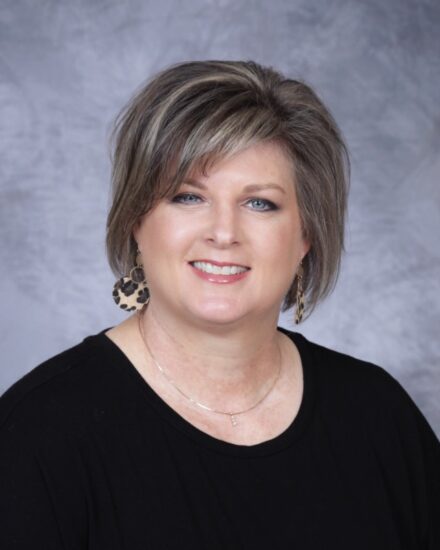
As part of our upcoming week-long celebration of Community School Coordinators, we’d like you to meet Laura Howard, District Community Schools Coordinator at Batesville Schools in Arkansas!
Laura has been working alongside the Coalition since she first became a Coordinator, about four years ago. Thanks to the support of an NEA Foundation grant, her team receives technical assistance from the Coalition for Community Schools to increase awareness and engagement around the Community Schools strategy in the Batesville school district.
Through this partnership, Laura has been able to grow her team and build the capacity of all the Coordinators in her district as they implement a sustainable, shared vision around the four pillars of Community Schools and adapt effective collaborative leadership practices. Using resources like the Stages of Development and learning more about Community Schools policy, finance, partnerships, and programs, Batesville is an exemplar of what quality Community School implementation looks like!
Laura’s team of Coordinators and other staff who help support the Community Schools in the District have a wide range of roles, as all Coordinators do – from conducting home visits to running the District food pantry.
Community Schools are public schools that blend and braid resources designed to achieve better outcomes for all students. Laura explains that “a Coordinator is the person that is coordinating all of those resources, assets and supports to make it all work. While I’m doing things on a district level, we have site coordinators that are coordinating things on their individual campuses, based on those campus needs.”
The day-to-day work of Community School Coordinators varies depending on the needs of the Coordinators school or student body. That can mean they are organizing engagement events, providing support for students and families and building relationships with them, and very importantly, establishing new partnerships.
“Their role is just so large – from needs assessment survey collection and data analysis, being a part of your campus site team and drawing awareness to what the needs assessment surveys say, and then working on how you can add that to a strategic plan for your building to do things better for students and families based off of input from our staff and families.”
Laura and her team have learned a lot since they began this work and see the fruits of their labor in the relationships they’ve built: “We can have a lot of programs and things that we do very well, but [we need to] help our staff and community understand what our system is, and how they can be involved with it. So, as far as partners, what we found is that people in our community really want to help. They just haven’t either been asked or they don’t know how to help. So getting out there and having relationships with community members has been very helpful to us in our work.”
With the back-to-school season already upon us, there’s a lot do related to helping the Batesville team continue to implement this strategy with success. The Batesville School District Community School Team begins the school year with professional development sessions to draw awareness to Community Schools and discuss key elements of their strategy, align it to where they are in the work, and share how they can access resources for their students or families. “In many respects, we want to be the hands and feet for them, especially related to student support,” Laura says.
To help do this, Laura’s team has a system in place where a staff member can fill out a form to request support for a student or family, and then a plan of action is created. This frees up the capacity of teachers, who might have a stronger relationship with a student or family member, to focus more on lessons and teaching and bring in other staff to help make sure their other needs are being met.
Laura is also helping more people see the value of this important Community School role. “We often talk about the return on investment by having that Coordinator in place. What are the resources, from material things to even monetary things, that are coming into our district and into our building because we have Coordinators? Coordinators are just invaluable to this work.”
Discussing the importance of collaboration and partnerships, Laura adds that the Community School Team meet weekly to talk about how they can support each other, whether on an individual campus level or more broadly for the entire district. In addition to these internal partnerships, she emphasizes the Coordinator role is also about connecting with other civic organizations and community groups, such as chambers of commerce, local nonprofits, healthcare systems, etc.
“Be engaged in all the places that you can be engaged. That’s where you’re forming partnerships and you’re talking to people who have connections to resources that we need in our schools. So when they start hearing about what we’re doing they’re more likely to come along and support us because they know us. They know our mission, they know our vision and what we’re trying to do.”
Despite all the impactful work the district is doing, Coordinators can always use more support. Laura has helped her District apply for the latest Full Service Community School grant from the Department of Education. “If we get that, that’s a game changer for some of the work that we want to do. More money helps us do more things.”
Learn more about the work Laura’s team does here.